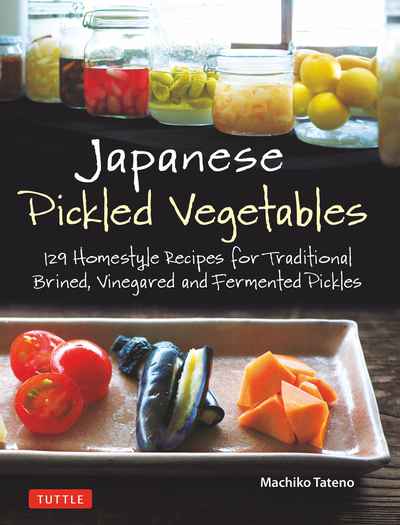Japanese Pickled Vegetables: 129 Homestyle Recipes for Traditional Brined, Vinegared and Fermented Pickles

Paperback | Oct 2019 | Tuttle Publishing | 9784805315309 | 144pp | 254x190mm | GEN | AUD$29.99
*2020
IACP Cookbook Award Finalist for Health & Nutrition*
*2020 Gourmand Cookbook Award Winner for Japan in Fermentation*
A chapter on regional pickling styles and recipes lets home cooks learn more about the traditional art of tsukemono in Japan — from Tokyo to rural farm villages — while a section on pickling seasonal vegetables helps you make the most of your garden-fresh produce.
'Pickled vegetables were my favourite component of most meals we ate in Tokyo. Japanese Pickled Vegetables by Machiko Tateno has a clean layout and glossy photos that sing 'You can do this.' I longed for the bright zinging taste of vivid carrot chunks, startling daikon slices, sweet-and-sour green cucumber ribbons, but muttered 'too many hard-to-get ingredients — kombu seaweed?' Later, while staring down another bowl of pandemic ramen, I took the plunge. Raiding the pantry and fridge, I was able to make fresh cucumber pickles, quick carrot, radish, napa cabbage pickles and kimchi.' — Shelf Awareness
'…Tateno keeps this guide basic and simple…Current interest in fermenting and pickling make this a perfect addition to any cookery collection.' — Booklist
'Japanese Pickled Vegetables is a well-written cookbook that's appropriate for both beginner and advanced cooks who'd like to have a collection of Japanese-style pickled produce. It's a wonderful resource especially for those who have their own vegetable garden during the warmer seasons and want to preserve their bounty for the winter.' ― Today's Dietitian
